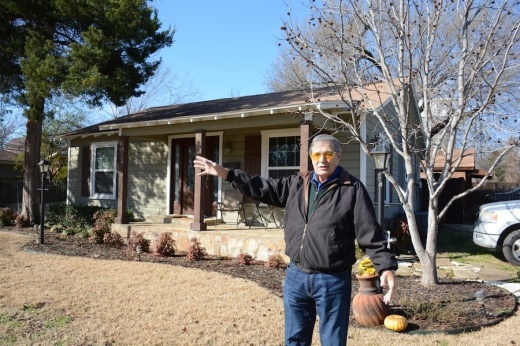“[My guests are not] going to the big hotels; they come in to go to Main Street,” Larson said at a Jan. 16 Grapevine City Council public hearing.
A January ordinance prevents Larson and other property owners from renting out their spaces for fewer than 30 days at a time. Now, they will have to apply for a city permit online, pay a $500 annual fee and meet other regulations for short-term rentals.
Officials contend short-term rentals are not and have not been an allowable use of property within the city since 2018. During the Jan. 16 meeting, some operators said they would accept some regulation of short-term rentals within single-family residences.
What’s happening?
Grapevine’s ordinance took effect Jan. 16. It requires applicants to pay the annual permitting fee, restrict operations to apartments and limit operations to no more than 180 days per year.
“Short-term rentals have never been allowed in single-family neighborhoods in the city because they are wholly incompatible with their neighbors,” City Attorney Matthew Boyle said in an email.
Grapevine projections show the city making more than $10.3 million this fiscal year in hotel occupancy taxes. The city does not expect to collect any of these taxes from short-term rentals, nor is the city interested in that money, Boyle said.
John Perrault, a short-term rental operator, said he thought the regulations on single-family homes were unfair compared to nearby cities that allow them with permits.
“I have no problem with a permit fee, no problem with any ordinances ... as long as it’s fair,” Perrault said at the Jan. 16 meeting.
Active rentals by the numbers
- 84 active rentals (as of December 2023)
- 84% of rentals are the entire home
- 16% are a private room
The backstory
Grapevine officials prohibited all city short-term rentals in 2018, but property owners sued to stop the ban. A temporary injunction allows residents to continue renting their properties to this day, said J. Patrick Sutton, an attorney for the property owners. He said his case is still relevant with the new regulations.
“We’re saying property owners have a fundamental right to decide how long the lease lasts,” he said.
Lawsuit halts short-term rental ban
- October 2018: Grapevine city staff craft ordinance prohibiting short-term rentals
- November 2018: A temporary injunction prevents the city from enforcing ordinance
- August 2019: Trial is delayed
- Late 2021: Fort Worth Court of Appeals finds validity in homeowners' case against Grapevine’s short-term rental ban
- June 2023: Texas Supreme Court declines city of Grapevine’s request to reverse the Court of Appeals’ decision
- January 2024: New regulations adopted by City Council
- TBD 2024: Case to go to final trial before the Tarrant County District Court
Boyle said the city has the right to enforce zoning regulations and dictate land use. He pointed to a Court of Appeals ruling that homeowners cannot use their properties as short-term rentals under the city’s zoning ordinance.
During the January meeting, some residents voiced complaints about short-term rentals used as party venues.
“High density short-term rentals greatly affect my life and enjoyment of my property,” Grapevine resident Laurie Teats said of her experience living next to a short-term rental.
Since 2019 there have been 25 calls to police about short-term rentals in Grapevine, and noise disturbances have made up the bulk of those complaints.Current situation
Over the last five years, the average number of short-term rentals peaked in Grapevine in 2021 but have remained higher than the 2019 total consistently. Larson said he and other short-term rental operators provide more affordable lodging to tourists wanting to visit Grapevine than is available elsewhere. Short-term rentals increased from an average number of 69 in 2019 to 77 in 2023.The takeaway
Regulations on short-term rentals will continue to be enforced on a proactive basis with those caught out of compliance subject to a fine of up to $2,000 per violation, Boyle said.
Permit application checklist
- Paying a fee and council approval is required for a permit.
- Contact and personal information is needed for the operator and a representative.
- Contact information for a 24-hour emergency contact must be provided.
- Operators must provide at least one parking spot per two-bedroom unit.






